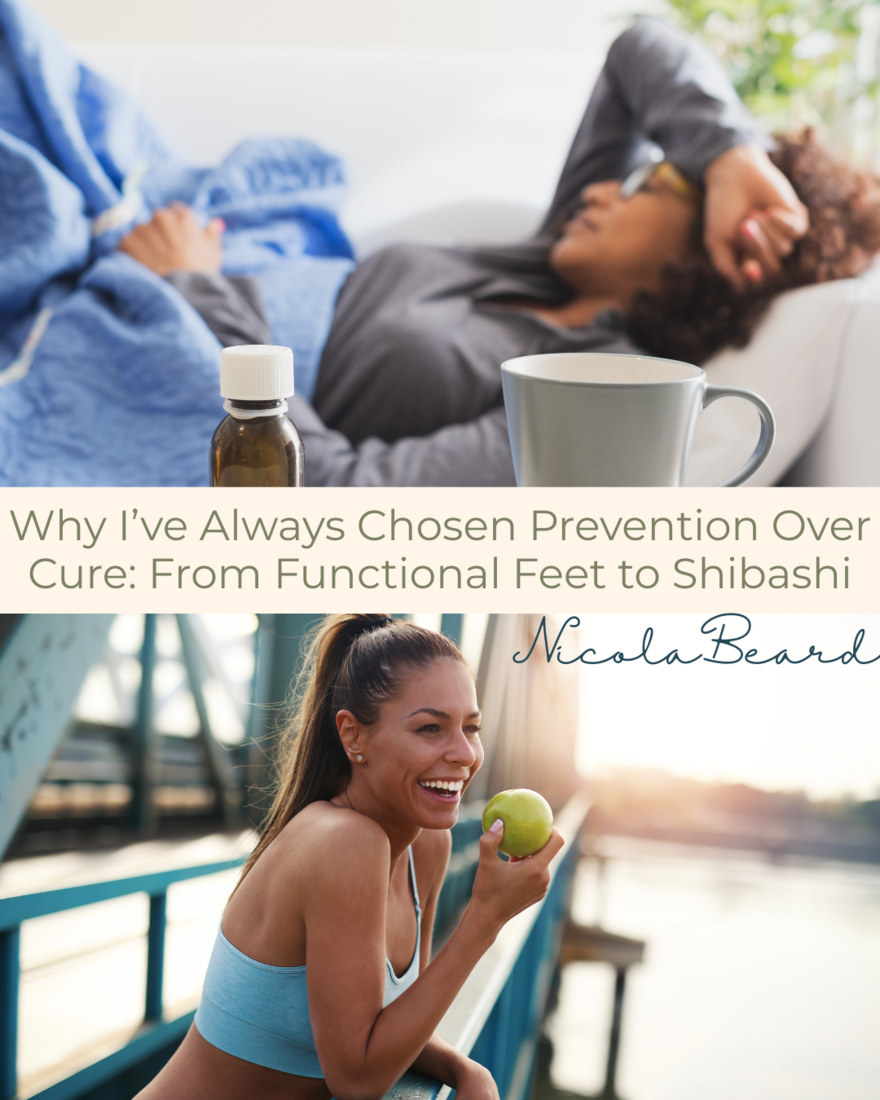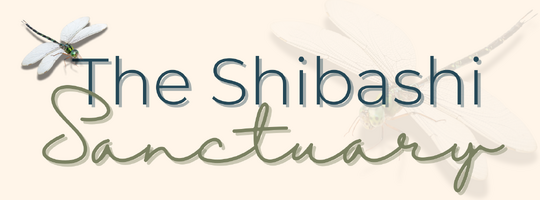
Why Wait Until You’re Unwell?
Most people only pay attention to their health once pain, stress or fatigue start interfering with daily life. I’ve seen this before, in my work as a corrective exercise and functional foot specialist. My philosophy has always been to act earlier, to notice the signs of imbalance before they turn into bigger problems. Taking a proactive approach to your health.
This approach is at the heart of Traditional Chinese Medicine (TCM). While Western health care often steps in once symptoms appear, TCM places prevention first. The aim is to keep the body and mind steady every day, so resilience builds and illness has less chance to take hold.
Proactive Prevention Has Always Been My Approach
When I specialised in foot function, I saw the same patterns over and over again. Most pain didn’t come from sudden injury. It came from weakness, instability or over-flexibility in the feet. Those small issues created strain that travelled into the knees, hips and spine. By building strength and stability early, people could avoid years of discomfort.
That experience shaped the way I think about health. Prevention isn’t an add-on, it’s the foundation. Today I see the same principle at work with Shibashi. Instead of waiting until stress, fatigue or hormonal changes take over, we can support the nervous system before it reaches breaking point.
The TCM View of Prevention
In TCM, health is described as a balance of qi (energy), blood, yin and yang. Illness isn’t seen as something that suddenly arrives, but as a sign that this balance has already been disrupted. The idea is simple: if you respond to those early signs of disharmony, you can stop them developing into chronic problems.
Even centuries ago, prevention was valued above cure. In some parts of China, doctors were paid while their patients stayed healthy. If someone became ill, the payments stopped. The responsibility was to maintain wellness, not just to fix sickness.
This philosophy makes sense to me. Whether it was teaching Pilates, working with foot function, or now guiding people through Shibashi, my approach has always been the same: notice the imbalance early and bring things back into line.
Prevention in Daily Life
TCM prevention isn’t a single treatment. It’s built into everyday living.
-
Movement such as Tai Chi or Qigong to keep energy and blood moving.
-
Breathing practices to calm the mind and support the organs.
-
Eating with the seasons to reduce strain on the body.
-
Acupuncture, herbs and acupressure to restore balance at the first sign of disruption.
-
Daily habits around sleep and emotional health to keep things steady.
For me, Shibashi sits right inside this tradition. Just as I once focused on strengthening feet to prevent pain, I now use Shibashi to strengthen the nervous system and prevent stress from digging in too deeply.
The Western Lens on Prevention
Western health care does recognise prevention, but it looks different. Screenings and tests are used to catch problems early. Vaccinations are given to block infections. But often the focus is still on responding once measurable symptoms appear.
TCM prevention works earlier in the process. It addresses imbalance before it turns into something a blood test or scan can measure. I used to see this in my foot work. By the time scans showed damage, the weakness or instability had usually been there for years. Now, with Shibashi, I see the same pattern. By the time stress shows up as burnout, poor sleep or chronic fatigue, the nervous system has already been struggling for a long time.
Why Shibashi Is A Proactive Therapy
Shibashi, which means “18 movements,” is a form of Tai Chi Qigong designed for health. It combines slow, flowing movements with steady breathing and gentle focus.
It helps prevent problems because it:
-
Brings the nervous system out of constant fight-or-flight and back into rest-and-repair.
-
Improves circulation, reducing stiffness and supporting recovery.
-
Enhances breathing so oxygen delivery improves and the mind settles.
-
Releases tension before it builds into pain or overwhelm.
-
Can be practiced by almost anyone, making it sustainable as a daily routine.
Modern research backs this up. Studies show Qigong practices can regulate the vagus nerve, lower cortisol and improve heart rate variability. All signs of a system that is resilient rather than overloaded.
Why Prevention Matters So Much Now
In today’s world, prevention isn’t a luxury. It’s essential.
Five years after Covid-19, many people are still carrying fatigue, stress and uncertainty. Add financial pressure, busy schedules and constant information overload, and the nervous system rarely gets a break.
For people with ADHD, the stress response is already heightened, so recovery takes longer. Shibashi provides a daily reset, preventing overstimulation from tipping into exhaustion.
Those living with chronic fatigue or fibromyalgia need energy to be used wisely. Shibashi offers gentle movement that supports recovery without pushing the body into flare-ups.
Also during perimenopause, hormonal changes magnify stress sensitivity, disrupt sleep and affect mood. Shibashi smooths this transition by helping the body and mind stay balanced.
These examples all come back to the same principle I’ve worked with: prevention. Whether it was weakness in the feet or imbalance in the nervous system, the earlier you act, the better the outcome.
Shibashi as Daily Maintenance
We all brush our teeth every day, not because they hurt, but to stop problems building. Shibashi works in the same way for the nervous system. Just a few minutes of practice each day keeps stress from embedding itself in the body. It helps you stay steady, calm and resilient, even when life is challenging.
Prevention Made Simple
Prevention only works when it’s consistent. Shibashi makes this easy because it doesn’t need equipment, just space to stand and breathe. Even five minutes can make a difference. The practice can be as gentle or as calming as you need it to be.
At The Shibashi Sanctuary, I keep prevention simple and practical. My aim has always been to give people the tools to stay ahead of problems, to live with more energy, more calm and more confidence.
Key Takeaway
TCM has always placed prevention at the centre of health. Shibashi brings that wisdom into everyday life. It is simple, gentle and effective, and it helps you keep your nervous system balanced before stress, fatigue or hormonal changes take over.
This has always been my way of working. From teaching Pilates, to addressing weakness and instability in the feet, to now guiding people through Shibashi, prevention has been the thread that connects it all.
Prevention starts with the small, steady choices you make each day. Shibashi is one of the easiest and most powerful ways to begin.

Comments